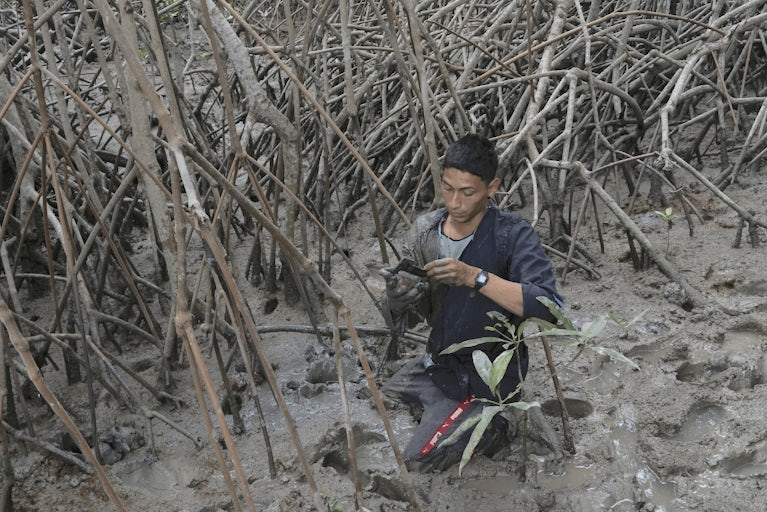
Fallout from Ecuador's Crises Highlights Need to Invest in Grassroots Resilience
Amid ongoing violence and climate extremes in Ecuador, Heifer’s CEO argues for scaling investments in community-led resilience.
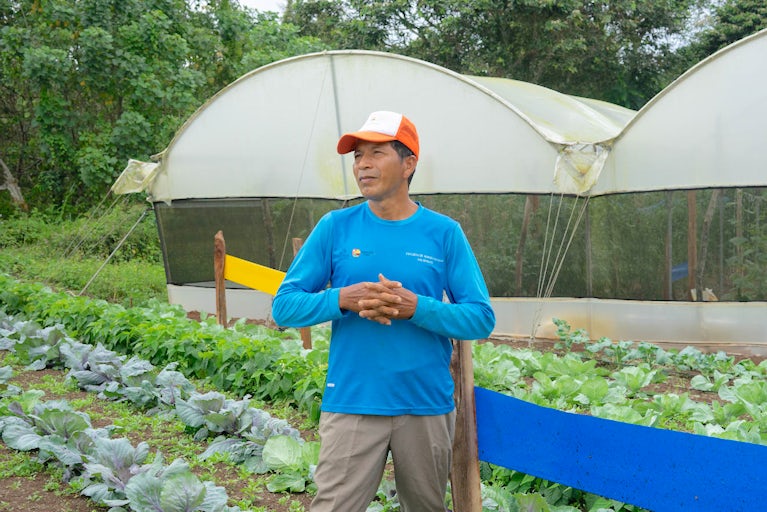

We strengthen triple-impact rural businesses, driving positive outcomes for incomes, food security and the environment.

Rosa Rodríguez Jaramillo, Country Director
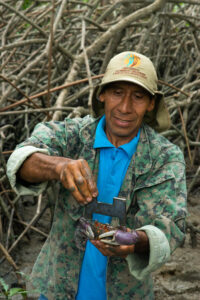
In Ecuador, 61 percent of rural women engage in agricultural and related livelihood activities. Yet, rural family farmers struggle with volatile pricing due to dollarization, limited access to value-added processes and difficulties in securing formal financing. The recent economic downturn, exacerbated by organized crime, disruptions in oil production and climate-related events, has further stressed these vulnerabilities. According to the most recent estimates, poverty affects more than 25 percent of Ecuadorians — more than 4 million people — while food insecurity affects more than one-third of the population.
Ecuador’s constitution recognizes the rights of nature and Indigenous peoples, underscoring a commitment to social justice and environmental stewardship. However, climate-related disasters threaten economic stability and amplify food security challenges, increasing the need for strong agricultural support and financial solutions for rural farmers. The country’s diverse ecosystems — from the Amazonian rainforests to the Andean slopes — offer vast opportunities for rural development. By supporting rural family farmers, who are best positioned to responsibly steward the ecosystems they work in, agribusiness can drive economic growth, improve food stability and strengthen climate resilience to secure a sustainable future for its citizens.
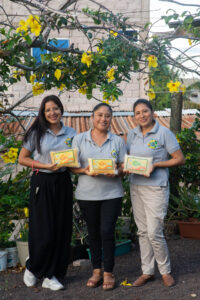
Heifer International’s objective in Ecuador is to ensure long-term results and foster partnerships for sustainable locally led development. We envision resilient and prosperous communities where rural families access resources, knowledge and opportunities to reach their full potential. By providing technical assistance, training and financial support and connecting farmers to markets, we help grow the economy, improve food security and build resilience across Ecuador’s ecosystems.
Creating and improving rural businesses with environmentally friendly practices and sustainable landscape management is critical to our poverty alleviation efforts, with programs that promote resilient and fair food systems, gender equity, social inclusion and biodiversity conservation. We support rural communities to adopt more productive methods and nature-based solutions that protect, manage and restore degraded ecosystems, and we work closely with local populations — particularly Indigenous women — to leverage their leadership and knowledge to encourage self-management and sustainability.
Our primary objective is helping families achieve a sustainable living income, our measure for the amount of money required for a decent life — including safe shelter, nutritious food, clothing, education and health care — while also reaching additional benchmarks for economic and climate resilience.
Year Heifer launched in Ecuador
Household participants in 2024
Household participants to date
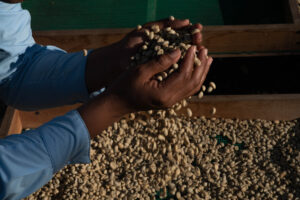
Heifer International’s work is organized at the country level into Signature Programs focused on large-scale, measurable and sustainable impact achieved by building partnerships at all levels. Each program supports farmers through time-bound projects designed to increase their household income.
The Future of Food Signature Program aims to build sustainable food systems and reach 189,000 families in urban, peri-urban and rural areas by 2030. The program operates across five ecosystems — coastal marine, dry forest, humid forest, Andean slopes and páramo — to help rural families overcome poverty and reach a living income.
The Promesa Café y Cacao Signature Program strengthens food security for coffee and cacao rural family producers in Ecuador, the world’s leading exporter of high-quality cacao. This program focuses on reducing reliance on a single seasonal product and generating year-round income to improve producers’ quality of life and livelihood sustainability.
Project timeline: 2022–2026
The Biobusiness Ecuador: Sustainability of Native Biodiversity project helps companies use native species in a way that doesn’t harm the environment, with the goal of stopping the decline of Ecuador’s native biodiversity. It provides legal support, business training, seed money for research and credit to enable companies to grow. The project works closely with four pilot companies to create the best tools and incentives for success.
Project timeline: 2023–2024
Ecuador is currently the third largest cocoa producer in the world and the leading producer of fine aroma cocoa. In 2021, Ecuador reached 360,000 tons of cocoa exports, totaling more than $950 million. The Cacao and Coffee: Strengthening Value Chains project works with families in the production and marketing of coffee and cocoa in the El Oro, Guayas and Loja provinces, enabling more than1,525 families to improve their income.
Project timeline: 2024–2027
The Cocoa and Coffee Sustainability Partnerships (PASOS) project works with 33,000 direct and indirect producer families and 24 coffee and cocoa associations. It seeks to improve the living conditions of 5,500 families and close the poverty gap of 600 families through the generation of monthly income of at least $823.50, equivalent to $9,880 per year. This adds 53 percent to the current monthly income of $536.
Project timeline: 2022–2024
The Forest Restoration in Santa Elena project supports seven local groups and benefits 110 families by focusing on the restoration, conservation and sustainable management of natural areas. This helps farmers and local businesses use natural resources and the land in a way that protects the environment. The goal is to balance economic development with the care of nature to ensure a healthy environment for the future.
Project timeline: 2021–2024
The Guarango: Business, Associativity and Restoration of the Andean Dry Forest project strengthens the guarango production chain by integrating a national network of collectors and focusing on improving business operations, forming associations and promoting forest restoration and sustainable management of the Andean dry forest environment. Guarango — a tree native to the Andean dry forest — produces pods that are in high demand for industrial uses. With 90 percent of collectors being women, the project fosters inclusion and positions guarango as a significant family income source.
Project timeline: 2023–2024
The Sharing Lessons Learned: Replicability of Ecological Responses for the Integrated Management of Invasive Pest Species (IPS) on Isabela Island project is a replica of a project successfully implemented in San Cristóbal in partnership with the Ministry of Agriculture and Livestock of Ecuador and the Galápagos Invasive Species Fund of the Sustainable Environmental Investment Fund.
The project promotes the exchange of experiences among 44 families of agroecological producers on pest control practices. Climate monitoring is carried out with three weather stations and seven ecological alternatives for pest management have been implemented.
Project timeline: 2020–2027
The Future of Food project aims to help 42,415 households earn income and have better access to food by promoting eco-friendly farming and selling methods. We teach better business skills to participants, make farming more reliable, help farmers work together to sell their products and create markets that encourage responsible buying. These actions cut out middlemen and ensure farmers are paid more while consumers pay fair prices.

Amid ongoing violence and climate extremes in Ecuador, Heifer’s CEO argues for scaling investments in community-led resilience.
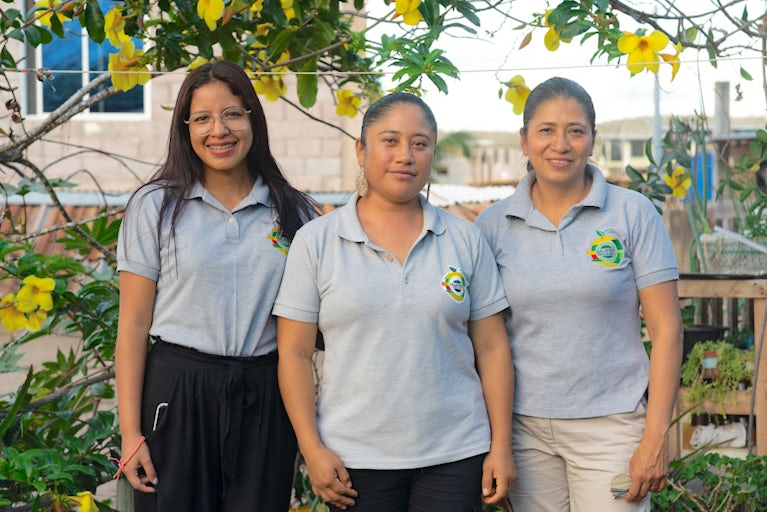
Women farmers lead in food security and gender equality through Heifer Ecuador’s Future of Food program.
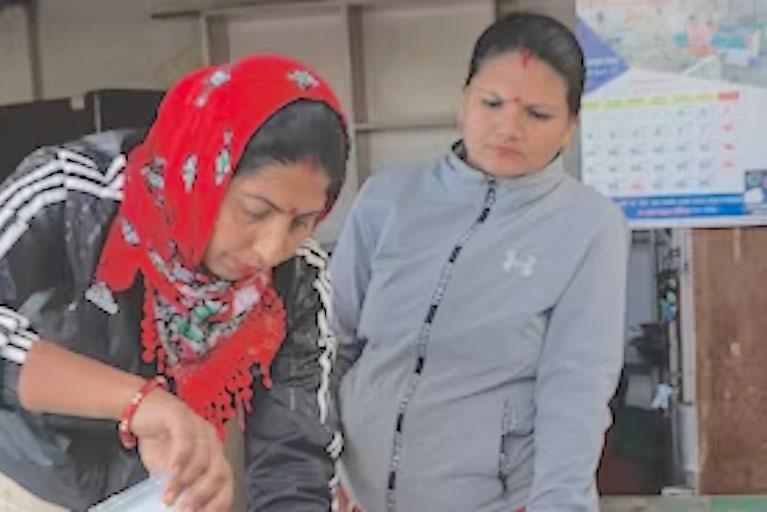
This fact sheet explains Heifer’s locally led development approach, defines sustainable locally led development, and discusses why this approach is important.
Rafael Chiadó, Provincial Government of Santa Elena
Cart is empty
Success!
Please be patient while we send you to a confirmation page.
We are unable to process your request. Please try again, or view common solutions on our help page. You can also contact our Donor Services team at 855.9HUNGER (855.948.6437).
Covering the transaction fee helps offset processing and administrative fees that we incur through taking payments online. Covering the transaction fee for each payment helps offset processing and administrative fees that we incur through taking payments online. Covering the transaction fee for each payment helps offset processing and administrative fees that we incur through taking payments online.
Success!
Please be patient while we send you to a confirmation page.
We are unable to process your request. Please try again, or view common solutions on our help page. You can also contact our Donor Services team at 855.9HUNGER (855.948.6437).
When you donate a gift to someone, you'll have the option to create a free card after your donation is complete.
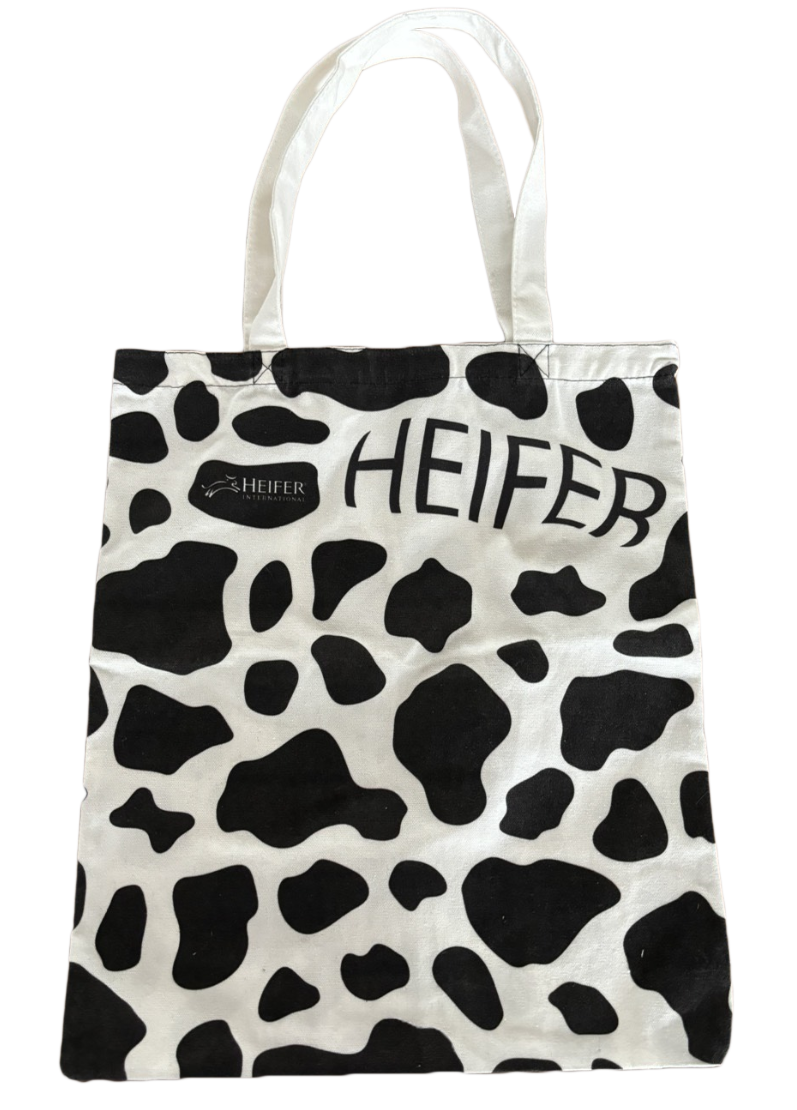
A FREE gift will be sent to supporters who choose to give a monthly gift.
Covering the transaction fee helps offset processing and administrative fees that we incur through taking payments online. Covering the transaction fee for each payment helps offset processing and administrative fees that we incur through taking payments online. Covering the transaction fee for each payment helps offset processing and administrative fees that we incur through taking payments online.

A FREE gift will be sent to supporters who choose to give a monthly gift.